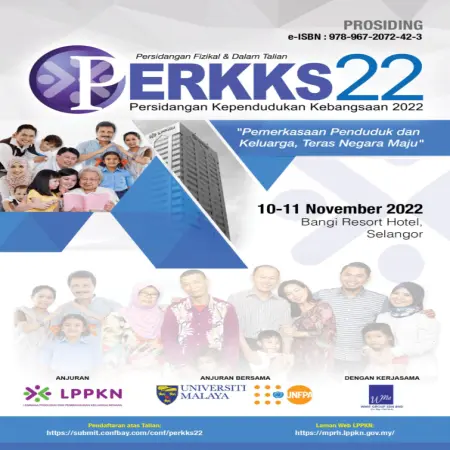TOPICS
Results for Topics : "Demography"
|
|
The 55th session of the Commission on Population and Development United Nations, New York, 25-29 April 2022
Item Type: Country Statement
Editor:
Year: 00/04/2022
Abstract: Malaysia’s socio-economic development has been significant in transforming our economy from a low income to an upper-middle-income status. We have achieved significant progress in eradicating poverty and narrowing inequalities. However, the COVID-19 crisis has resulted in vulnerable households falling into poverty and hardship.
|
|
|
|
|
|
The socio-demographic factors affecting labour participation of older people in Malaysia: evidence from the fifth Malaysian population and family survey 2014 (MPFS-5)
Item Type: Book Section
Editor:
Year: 00/00/2022
Abstract: This study analyses the relationship between sociodemographic characteristics and labour participation among 4,059 older Malaysians (age 60+) using data from the Fifth Malaysian Population and Family Survey 2014 (MPFS-5). A binary logistic regression was used to identify the significant predictors of older Malaysians participating in the labour market after controlling for key demographic, health and socio-economic, geographical and intergenerational support variables.
|
|
|
|






